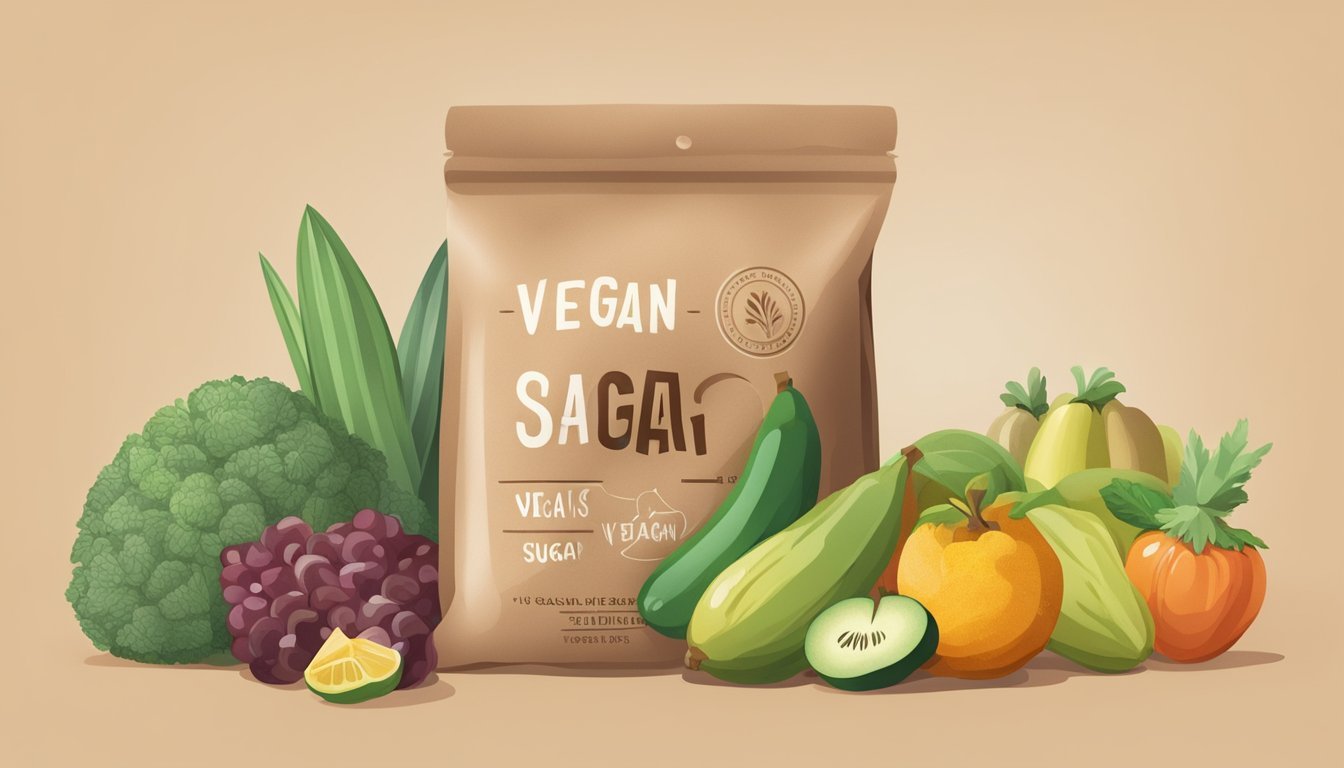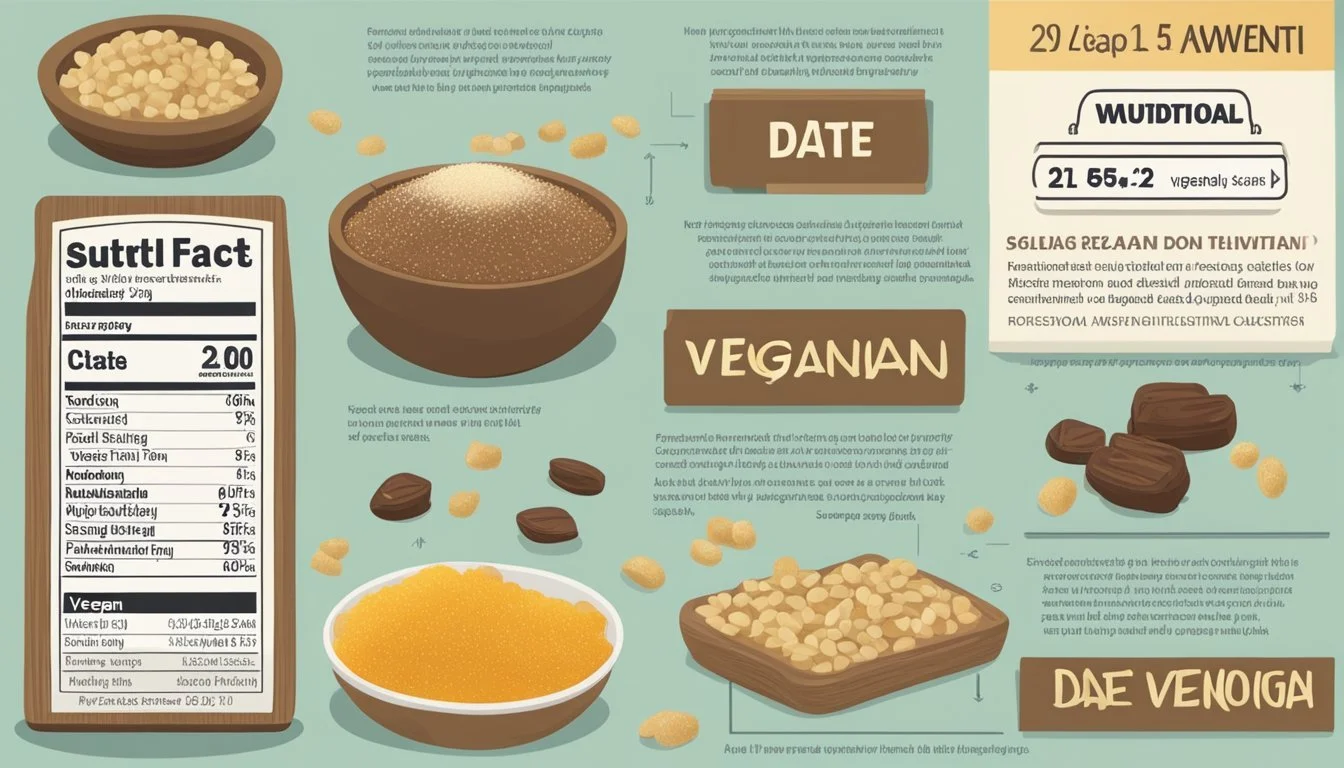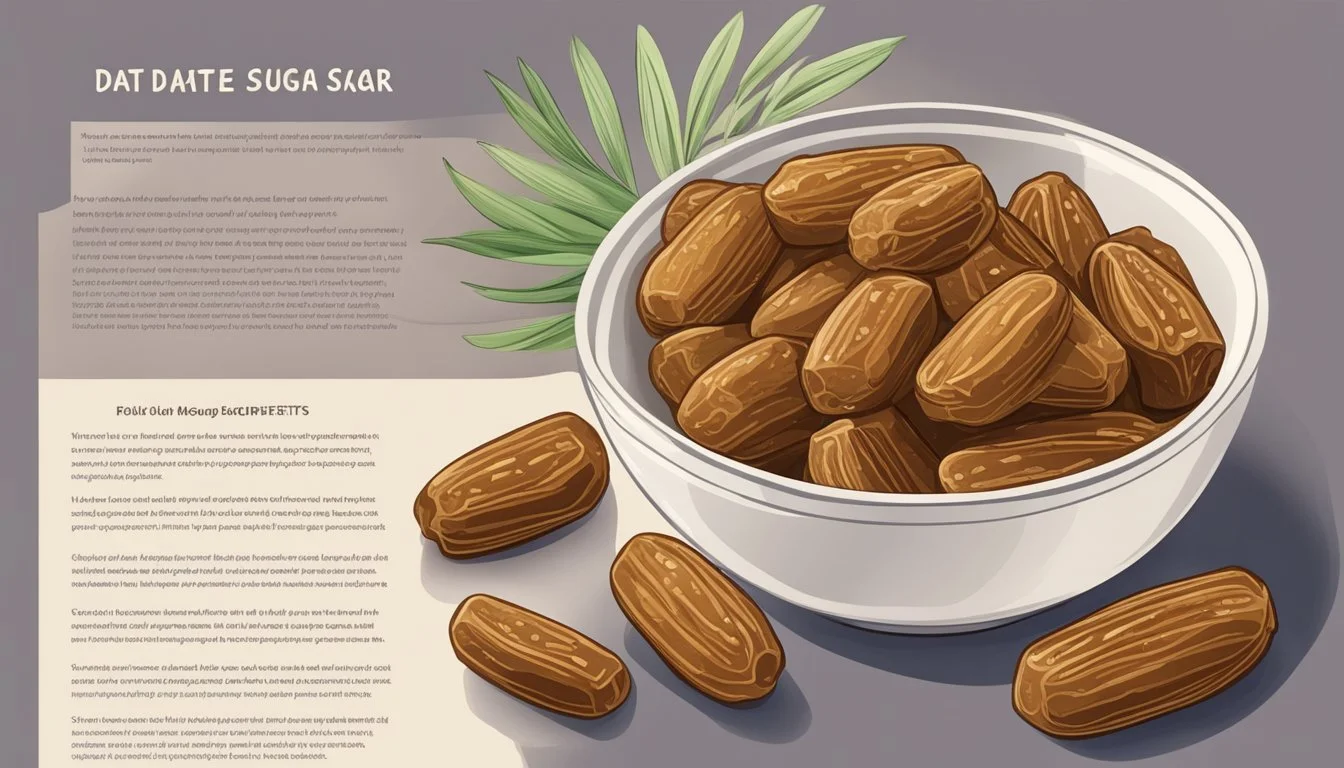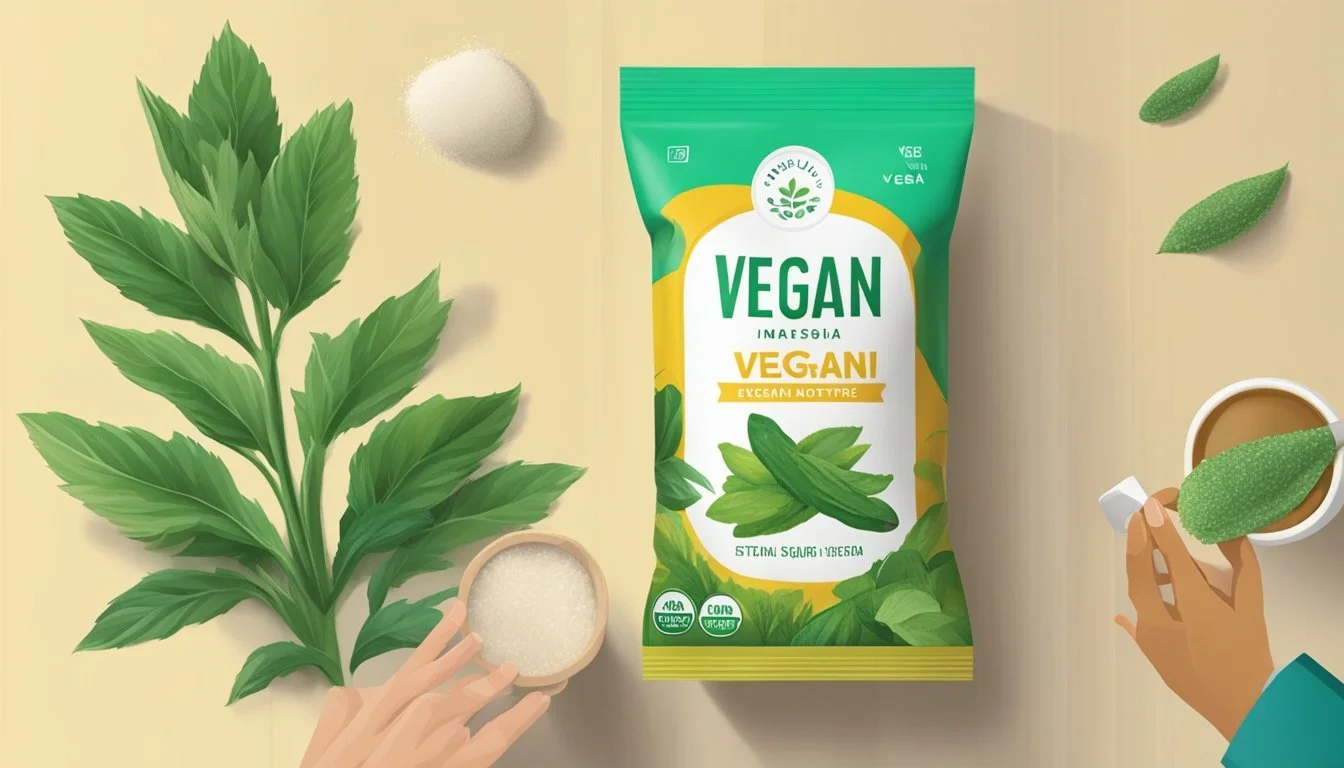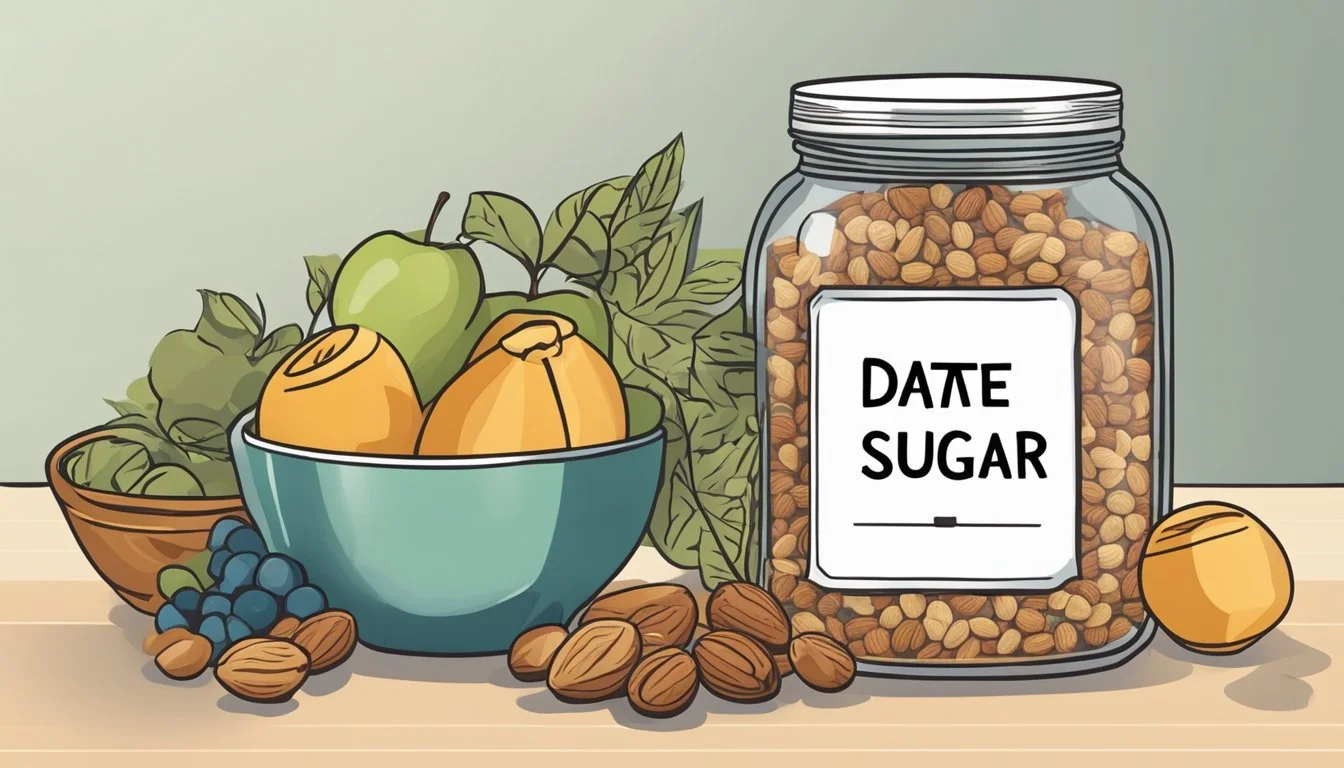Is Date Sugar Vegan?
Understanding the Sweetener's Plant-Based Profile
Date sugar, a natural sweetener derived from dried dates, has gained popularity as a healthier alternative to refined sugars. As people increasingly seek plant-based and cruelty-free options, the origins and processing of food products come under scrutiny, establishing whether or not they align with vegan standards. Veganism extends beyond a diet free from animal products; it is a lifestyle choice avoiding the exploitation of animals. Date sugar, being sourced from dates alone, typically without the addition of animal-derived substances in its processing, aligns with the vegan philosophy.
This sweetener not only offers an animal-friendly option but also comes with nutritional benefits. Date sugar retains the fiber of the whole fruit and contains antioxidants that may have anti-inflammatory properties. Its low glycemic index is also a point of consideration for those monitoring their blood sugar levels.
While it does not dissolve well in water, making it distinct from some other sweeteners, date sugar's granular form can be used in a variety of culinary applications, such as baking or as a topping. This versatility along with its vegan-friendly nature makes it a suitable sugar alternative for those following a vegan lifestyle.
What Is Date Sugar?
Date sugar is a natural sweetener derived from dried dates. It is prized for its whole food origin and minimal processing, which retains many of the fruit's inherent nutrients.
Origins and Production
Date sugar originates from the fruits of the date palm tree. The production process for this sweetener is quite simple and maintains the integrity of the whole food. Dried dates are used, as they are dehydrated fruits with concentrated flavor and sweetness. These dried dates are then ground into granules, creating a sugar that retains much of the fruit's nutritional content.
The process involves:
Selecting and harvesting ripe dates.
Drying the dates to remove moisture.
Grinding the dried dates into a coarse powder or fine granules.
This method ensures that most of the natural qualities of the dates, such as their fiber and nutrients, remain intact. The result is a sweetener that is less refined than conventional white sugar, embodying the essence of the whole fruit. As date sugar is simply made from fruit, it can be considered vegan, aligning with a diet free from animal products.
Nutritional Profile of Date Sugar
Date sugar is derived from whole, dehydrated dates, making its nutritional content quite distinct from regular sugar. Unlike refined sugars, date sugar retains more of the fruit's natural nutrients, including a variety of minerals and vitamins, as well as dietary fiber.
Caloric Content
A teaspoon of date sugar contains roughly 15 calories. It consists primarily of carbohydrates, the main source of its calories.
Minerals and Vitamins
Date sugar offers a range of essential minerals and vitamins. It includes significant levels of:
Potassium: Important for maintaining electrolyte balance and heart health.
Magnesium: Plays a role in over 300 enzymatic reactions, including energy creation and muscle movements.
Calcium: Vital for bone health and dental health.
Iron: Crucial for the production of healthy red blood cells and oxygen transport.
These minerals are complemented by modest amounts of antioxidants and vitamins, contributing to its nutritional value.
Fiber Content
One of the key characteristics of date sugar is its high fiber content. Fiber is beneficial for digestive health and can help in maintaining a feeling of fullness. Regular sugar does not contain dietary fiber, which is a significant difference between the two.
Vegan-Friendly Sweetener
When evaluating sweeteners, vegans must ensure these alternatives do not involve animal products during any stage of production and are derived from plant sources.
Animal Product Involvement
Many conventional sweeteners are processed with animal-derived products. For example, bone char—charcoal made from animal bones—is commonly used in the sugar industry to decolorize sugar, making it non-vegan. It is crucial for vegans to verify that their sweeteners are not refined using bone char or any other animal products. Other potential non-vegan processing agents include activated charcoal which can be derived from animal bones or other organic materials.
Vegan Alternatives
Vegan sweeteners include those made directly from plants without animal involvement. Date sugar is an excellent example, consisting of dehydrated and ground dates. Date sugar qualifies as vegan because it does not go through animal-based filtering processes. Other plant-derived sweeteners, such as maple syrup and agave nectar, also offer vegan-friendly alternatives. These sweeteners are extracted from plants directly and processed without animal derivatives. Here is a concise list of vegan sweetener alternatives:
Date Sugar: Made from dried dates.
Maple Syrup: Derived from the sap of sugar maple trees.
Agave Nectar: Extracted from the core of the agave plant.
These options provide sweetness derived solely from plants, aligning with vegan ethics.
Health Benefits and Drawbacks
Date sugar, as a plant-derived natural sweetener, offers several health benefits, particularly for those following a vegan diet. However, individuals considering its use should weigh these against potential drawbacks related to sugar consumption in general.
Glycemic Index
The Glycemic Index (GI) of a food indicates the rate at which it raises blood sugar levels. Date sugar has a relatively lower GI compared to regular sugar, which means it causes a more modest rise in blood sugar. This can be particularly beneficial for individuals managing Type 2 diabetes or those seeking to maintain steady energy levels.
Digestive Health
Rich in dietary fiber, date sugar aids in promoting digestive health. The fiber content contributes to a feeling of fullness, which can help in weight management. It assists in regular bowel movements and may contribute to a lower risk of digestive-related issues.
Balanced Diet Contributions
Date sugar can be a part of a balanced diet when used in moderation. Its nutritional profile includes vital minerals such as potassium and magnesium, which supports overall health benefits like maintaining a healthy blood pressure. However, even though it is more nutritious than regular sugar, it should not be viewed as a health food and must be consumed judiciously within the daily recommended sugar intake levels.
Comparing Sweeteners
When considering the switch to date sugar, understanding its comparisons with other types of sweeteners—both natural and refined—is crucial for consumers who prioritize health and ethical consumption.
Date Sugar vs. Other Natural Sweeteners
Maple Syrup: A natural sweetener harvested from the sap of sugar maple trees. It contains minerals, antioxidants, and can be used in a 1:1 ratio with date sugar in recipes. Despite its natural origins, maple syrup's glycemic index is typically higher than that of date sugar.
Coconut Sugar: Harvested from the sap of the coconut palm, coconut sugar has a lower glycemic index than traditional white sugar. However, date sugar still generally boasts a lower glycemic index, making it the preferable option for those managing blood sugar levels.
Agave Syrup: Extracted from the agave plant, it has a high fructose content and is sweeter than granulated sugar. While vegan, it's more processed compared to date sugar and has a significantly higher glycemic index.
Honey: While natural, honey is not considered vegan as it is produced by bees. It consists of fructose and glucose and has a higher calorie content than date sugar.
Molasses: A byproduct of cane sugar processing. It contains nutrients and is used in a variety of recipes. Though it is natural, date sugar is less processed, as it is simply dried dates ground into a powder.
Refined Sugars Comparison
White Sugar: Also known as granulated sugar, it is highly refined, stripped of all nutrients, and has a high glycemic index. It's normally produced from sugarcane or sugar beets and involves animal byproducts in some manufacturing processes, which may concern vegans.
Brown Sugar: Essentially white sugar with molasses added back in. While it retains some of the molasses' nutrients, it's still more processed than date sugar and typically not vegan due to the same production concerns as white sugar.
High-Fructose Corn Syrup: A common sweetener in processed foods, HFCS is highly refined and has been linked to various health issues. Date sugar, in contrast, offers a whole-food alternative with no additives or artificial processes involved.
Cane Sugar: While natural, the refining process for cane sugar often includes the use of bone char, making it a non-vegan option. It also ranks higher on the glycemic index compared to naturally derived date sugar.
In summary, date sugar stands out as a less processed, lower glycemic index option with a vegan-friendly stamp when compared to many other sweeteners.
Culinary Uses of Date Sugar
Date sugar is prized for its natural sweetness and versatility in vegan culinary applications. Its caramel-like flavor adds a unique touch to various recipes, making it a desirable ingredient for those following a plant-based diet.
Baking with Date Sugar
In vegan baking, date sugar can replace traditional white or brown sugars on a one-to-one basis. It imparts a rich, caramel flavor to desserts and can improve the nutrient profile of the baked goods due to its fiber and mineral content. However, it's important to note that date sugar does not melt the way that granulated sugar does, which might affect the texture of some treats. For best results, one might need to blend date sugar in a food processor to get a finer texture that more closely mimics traditional sugar.
Desserts: Incorporate it into cookies, muffins, and cakes for added depth of flavor.
Yield: Date sugar may not rise exactly like conventional sugar, so adjustments may be necessary to achieve the desired consistency.
Sweetening Beverages
Date sugar can also be used to sweeten beverages, from hot drinks to smoothies. Because it is less processed than regular sugars, it retains more of the nutrients found in whole dates, including potassium and magnesium. Yet, it doesn't dissolve completely due to its fiber content, so it's best used in beverages where a bit of texture is acceptable or where it can be blended thoroughly.
Coffee and Tea: Enhances drinks with a subtle, earthy sweetness.
Smoothies: Blends well with other ingredients, contributing both flavor and a nutritional boost.
Alternative Uses in Recipes
As a whole food sweetener, date sugar can be used beyond desserts and beverages; it's also suitable for various savory applications. Its natural sweetness pairs well with sauces and dressings, providing a balanced flavor profile in vegan recipes.
Savory Dishes: Experiment with adding it to tomato sauces or glazes for a touch of sweetness and complexity.
Caramel Flavor: Utilize its inherent caramel taste to enhance the flavor of vegan desserts without the need for artificial additives.
By integrating date sugar into vegan cooking, chefs and home cooks alike can explore a range of new and exciting culinary possibilities.
Storage and Preservation
Proper storage enhances the shelf life of date sugar, ensuring it retains its quality and sweetness over time.
Shelf Life
Date sugar has a considerable shelf life when stored correctly. Typically, an unopened package of date sugar can last from 1 to 2 years. However, once the package is opened, its freshness can be maintained for about 6 months before its quality starts to degrade.
Optimal Storage Conditions
To maximize the longevity of date sugar, it should be kept in an airtight container which prevents moisture and other contaminants from affecting the product. The container should be placed in a cool, dark environment such as a pantry or cupboard, away from direct sunlight or heat sources. Clumping can occur if date sugar is exposed to air or moisture, but this can be avoided with proper sealing and storage practices.
Environmental and Ethical Considerations
When considering date sugar as a sweetening option, its environmental and ethical impact take precedence for the conscientious consumer. The sustainability of agricultural practices and the welfare of animals are integral to these considerations.
Sustainable Agriculture
Date sugar, derived from dehydrated dates, typically involves less processing than regular sugar. Sustainable agricultural practices are often employed in date farming, which aim to preserve the environment. For instance, date palms can thrive in arid conditions and often do not require the intense use of pesticides or fertilizers that other crops might, thereby reducing the environmental footprint. Furthermore, the superfood status of dates is attributed to their dense nutritional profile, not to the level of sustainability in their cultivation. However, the term "superfood" should not be conflated with "sustainable," as they signify different attributes.
Animal Welfare
Regarding animal welfare, date sugar stands out as it does not require animal products or byproducts in its production. This is a key ethical consideration for vegans, who avoid products linked to animal harm. In the context of regular sugar processing, bone char—derived from animal bones—may be used to whiten sugar, a fact that renders some sugars non-vegan. In contrast, date sugar maintains its color naturally and does not involve such processes, making it a fitting choice for those who prioritize animal welfare in their diet.
Making Date Sugar at Home
Date sugar, made from dehydrated and ground dates, offers a wholesome alternative to refined sugars. While it retains the fruit's fiber, it also imparts a unique caramel-like flavor to recipes. The following outlines the process for creating date sugar in your own kitchen.
DIY Process
Firstly, one needs to select quality dates; Medjool dates are a popular choice due to their natural sweetness and chewy texture. These dates need to be pitted and chopped before being spread onto a baking sheet. They are then dehydrated in an oven at a low temperature (around 200°F or 100°C) until they are dry and firm to the touch. Once cooled, the dates are pulverized into a granular form using a food processor. The resulting product should have a similar consistency to granulated sugar. If the homemade date sugar is clumping together due to its natural stickiness, it can be sifted to achieve a finer texture.
Custom Blends
For those looking to enhance their homemade date sugar, experimenting with custom blends adds an array of flavors and additional nutritional benefits. A popular option is to blend in nuts like almonds or seeds such as flax or chia, adding omega-3 fatty acids and a nutty flavor profile. Dried fruits like figs or apricots can also be incorporated for a more complex fruitiness. For a hint of exotic warmth, a dash of vanilla extract or a pinch of salt can be added during the blending process. These additions need to be completely dry, much like the dates themselves, to prevent the sugar from clumping. It is essential to blend the additional ingredients until they are fine and evenly incorporated into the date sugar.
Incorporating Date Sugar into a Healthy Lifestyle
Date sugar, derived from dehydrated dates, offers a wholesome alternative to refined sweeteners. Its integration into a diet strives for a balance between health benefits and moderation to maintain fullness and satiety.
Moderation in Consumption
Consuming date sugar, like any sweetener, should be done with moderation. While date sugar retains more nutrients than its highly processed counterparts, it still contributes to overall calorie intake. One must be conscious of the quantity used to avoid excessive caloric consumption, which can lead to health complications over time.
Dietary Integration
Date sugar can seamlessly fit into one's plant-based dietary regimen, enhancing flavors while contributing to nutrition. Here are specific ways to integrate date sugar healthily:
Replacement for refined sugars in baking, taking note that its granulated form may not dissolve as readily.
Sweetening agent in beverages, like smoothies or teas, lending a subtle, caramel-like taste.
Ingredient in homemade granola bars or energy balls to promote satiety and fullness.
The fiber content in date sugar aids in digestion, yet it’s essential to pair it with a diverse diet rich in fruits, vegetables, and grains to obtain the full spectrum of nutrients.
Conclusion
Date sugar is derived from dehydrated dates ground into a granular form. This natural sweetener is, indeed, vegan as it comes directly from fruit and involves no animal by-products or interference. It aligns with vegan principles, providing a cruelty-free alternative to refined sugars.
Key Points:
Vegan: Date sugar is made from dates alone, qualifying it as vegan-friendly.
Nutrient-Rich: It offers essential nutrients lacking in regular sugar, such as vitamins and minerals.
Versatility: Suitable for a wide range of vegan recipes, date sugar can enhance the flavor profile of desserts and other dishes.
Note for Health-Conscious Consumers: While date sugar is a healthier option due to its natural origin and nutrient content, it is still a form of sugar. Consumers should use it in moderation as part of a balanced diet.
Comparison with Other Sugars:
Sugar Type Vegan Status Nutrients Present Caloric Content Date Sugar Vegan High (vitamins, minerals) Similar to regular sugar Regular Sugar Typically Vegan Low High
In summary, those leading a vegan lifestyle can confidently incorporate date sugar into their diet, enjoying its rich, caramel-like sweetness and nutritional benefits, without compromising their ethical values.

